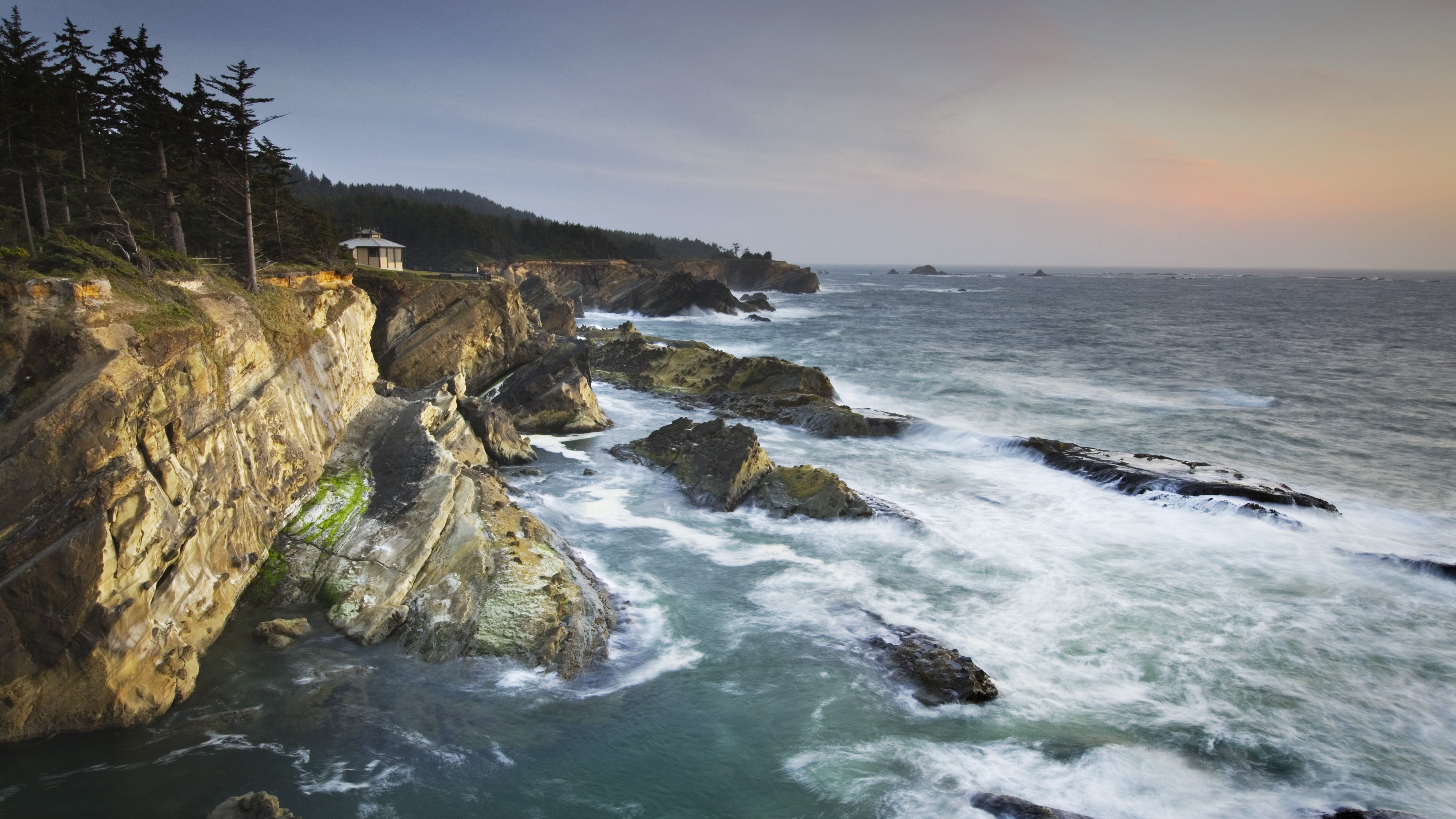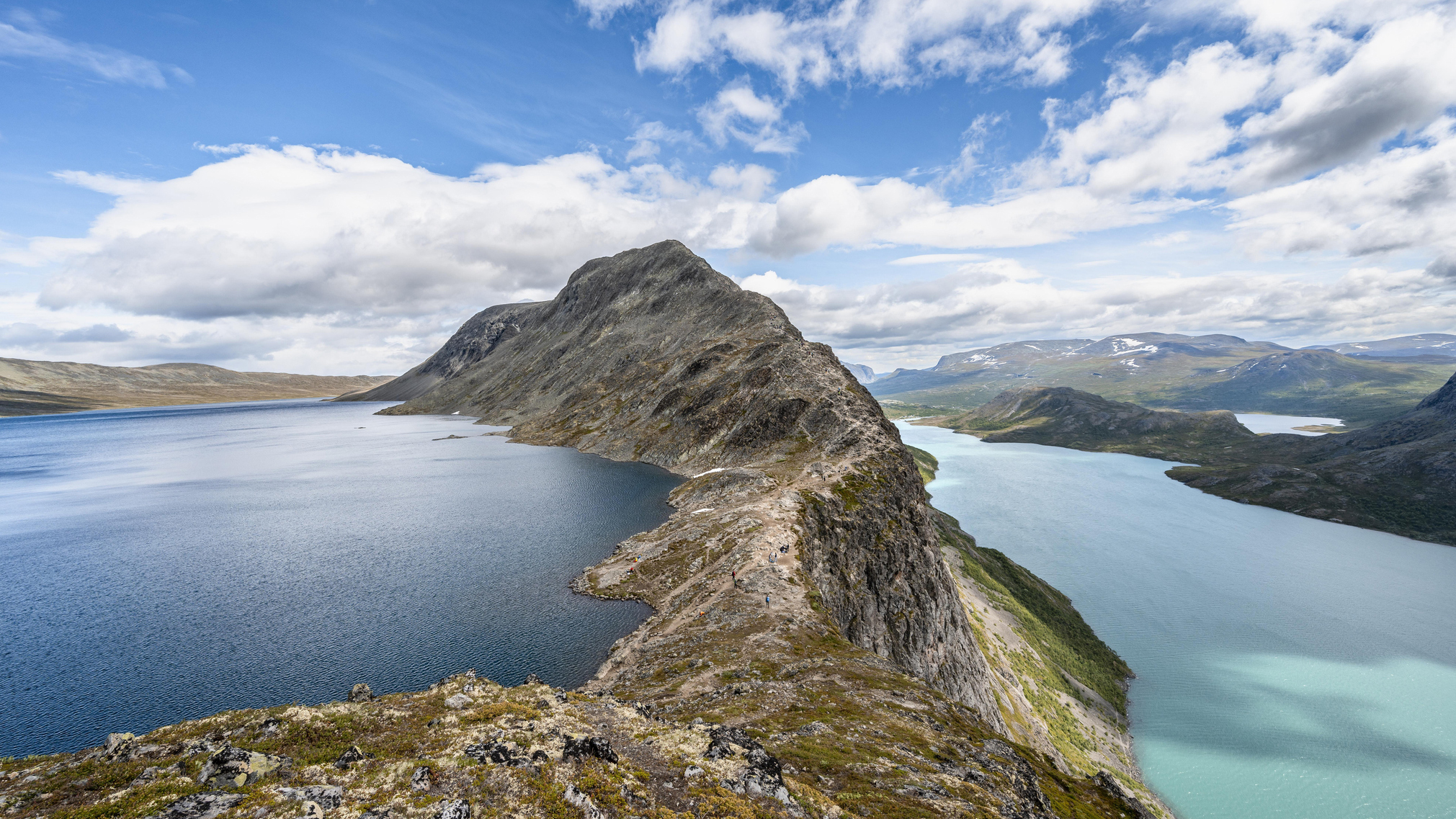Hiker missing for 2 days inadvertently made herself "undetectable" by seeking shelter – here's what to do instead
The 64-year-old had become separated from her party and had no survival gear

A 64-year-old hiker spent two nights lost in an Oregon State Park after inadvertently making herself unsearchable to rescue teams trying to locate her.
According to a news release from the United States Coast Guard, the woman was foraging with a group in Shore Acres State Park on Friday, December 6 when she became separated from her party. Shore Acres sits high on the clifftops near Coos Bay.
Knowing that the woman had no survival gear and with night approaching, her group requested Coast Guard assistance to try to locate her in the rugged terrain.
A helicopter was dispatched that night from Air Station North Bend but the crew was unable to find the hiker using thermal imaging before inclement weather forced them to return to base.
Throughout the day and night on Saturday, ground and air crews continued to search the scene with no clues, even with an infrared camera designed to detect body heat signatures in the area. Finally on Sunday at around 12:30 p.m., ground crews heard shouting.
"After some bushwhacking, the party located the missing woman who was showing signs of hypothermia and dehydration," states the USCG.
Crews warmed the woman by fire then airlifted her out of the scene and transferred her to the hospital. It was later discovered that because the woman had sought shelter underneath a log, she was "undetectable" to infrared cameras.
Advnture Newsletter
All the latest inspiration, tips and guides to help you plan your next Advnture!

How to make yourself searchable
Though this hiker did the right thing by seeking shelter and using what was available to her, she may have accidentally extended the amount of time she was lost. This story is a good reminder that even when you don't plan to spend the night outdoors, it's important to prepare as though you will.
Carrying an emergency shelter such as a bivy sack or even an emergency blanket will help you shield yourself from the elements without making you undetectable. There's also a good argument for dressing in brightly colored clothing with reflective details so others can more easily spot you if you are incapacitated.
It's useful to carry a whistle (many hiking backpacks like the Osprey Talon have these built-in nowadays) and a headlamp or flashlight that you can use to signal for help, which might be easier to detect than a human voice shouting.
Finally, there are technological solutions to situations like this. The more affordable option is to carry an iPhone with the SOS function that will work without cell service, as long as you also have a portable charger. For backcountry adventures, a satellite communicator like the Garmin InReach is more expensive but may be more reliable. Learn more in our article on how to make yourself searchable on a hike.
Julia Clarke is a staff writer for Advnture.com and the author of the book Restorative Yoga for Beginners. She loves to explore mountains on foot, bike, skis and belay and then recover on the the yoga mat. Julia graduated with a degree in journalism in 2004 and spent eight years working as a radio presenter in Kansas City, Vermont, Boston and New York City before discovering the joys of the Rocky Mountains. She then detoured west to Colorado and enjoyed 11 years teaching yoga in Vail before returning to her hometown of Glasgow, Scotland in 2020 to focus on family and writing.

